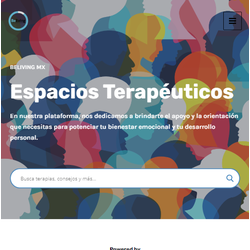
EHS
Social skills have become essential in both personal and professional settings, as the ability to interact effectively with others plays a crucial role in the success of our relationships and daily activities. However, for some people, developing these skills can be a challenge. Difficulties connecting with others can lead to problems building healthy relationships, resolving conflicts effectively, and adjusting to different social environments. This is where Social Skills Training (SST) comes in, a behavioral therapy designed to address these issues and help people improve their ability to relate and communicate.
What is Social Skills Training?
SST is a therapeutic approach that seeks to improve social interactions by teaching and practicing essential skills such as effective communication, empathy, active listening, and conflict resolution. Its main objective is to provide people with the necessary tools to face various social situations in a positive and assertive manner.
Training is usually carried out in individual or group sessions, where techniques such as role-playing, constructive feedback and observation of behaviors are used. Therapists help participants identify negative patterns in their social interaction and replace them with more effective behaviors. This process not only strengthens interpersonal relationships, but also improves self-esteem and social confidence.
How to Work on Social Skills Using EHS?
Social Skills Training is highly personalized and adapts to the particular needs of each person. Below are some key aspects that can be worked on through EHS:
Social skills have become essential in both personal and professional settings, as the ability to interact effectively with others plays a crucial role in the success of our relationships and daily activities. However, for some people, developing these skills can be a challenge. Difficulties connecting with others can lead to problems building healthy relationships, resolving conflicts effectively, and adjusting to different social environments. This is where Social Skills Training (SST) comes in, a behavioral therapy designed to address these issues and help people improve their ability to relate and communicate.
What is Social Skills Training?
SST is a therapeutic approach that seeks to improve social interactions by teaching and practicing essential skills such as effective communication, empathy, active listening, and conflict resolution. Its main objective is to provide people with the necessary tools to face various social situations in a positive and assertive manner.
Training is usually carried out in individual or group sessions, where techniques such as role-playing, constructive feedback and observation of behaviors are used. Therapists help participants identify negative patterns in their social interaction and replace them with more effective behaviors. This process not only strengthens interpersonal relationships, but also improves self-esteem and social confidence.
How to Work on Social Skills Using EHS?
Training in H
1. Development of Verbal and Non-Verbal Communication
One of the pillars of EHS is to teach people to express themselves clearly and to interpret the non-verbal signals of others, such as body language, facial expressions and tone of voice. These signals play a crucial role in communication and mutual understanding.
2. Active Listening
Learning to listen is just as important as knowing how to talk. EHS helps people pay attention to what others are saying, understand their point of view, and respond appropriately. This contributes to better connection and understanding in conversations.
3. Empathy
Empathy is the ability to put yourself in another's shoes and understand their emotions. EHS fosters this skill by teaching people to recognize and validate others' feelings, which is vital to building healthy relationships.
4. Conflict Resolution
Conflicts are inevitable in any relationship, but knowing how to handle them appropriately is critical. EHS provides strategies to assertively resolve disagreements and prevent differences from becoming larger problems.
5. Assertiveness
Learning to communicate one's needs and wants without being aggressive or passive is a crucial skill in social interactions. EHS teaches people to stand up for themselves and express their opinions in a respectful manner.
Is Social Skills Training Effective?
Several studies have shown that EHS is highly effective in improving the communication skills and interpersonal relationships of people who face social difficulties. According to research, social skills training is particularly useful for people with autism spectrum disorders, social anxiety, depression, or low self-esteem, although its benefits extend to anyone who wants to improve their social competence.
Social skills training is highly personalized and tailored to the particular needs of each person. Below are some key aspects that can be worked on through EHS:
EHS participants tend to experience an improvement in their ability to relate to others, increased self-confidence, and decreased stress levels in social situations. Additionally, practicing skills such as active listening and conflict resolution can have a positive impact on both personal and professional life, facilitating the creation of stronger and more effective social networks.
Social Skills Training is a powerful tool for those seeking to improve their ability to communicate and adapt in diverse environments. By focusing on key areas such as empathy, active listening, and conflict resolution, EHS can transform the way we relate to others, helping us build healthier and more satisfying relationships. If you feel that you are struggling in the social sphere or simply want to improve your interaction skills, EHS could be the answer you need to develop greater social well-being.


